“Martin Keown went to the World Cup in 1998 and 2002 but didn’t play a minute. Have any players gone to three (or more) major championships and not played?” tweets Peter Tang.
Martin Keown did at least play at a couple of European Championships, in 1992 (you’d forgotten that, hadn’t you) and 2000, so his international career wasn’t a complete waste of his time and abnormal intensity.
Les Ferdinand also went to a couple tournaments without playing – but unlike Keown they were the only times he was selected throughout his career. Though Ferdinand was in the squads for Euro 96 and France 98, the former when he was PFA Player of the Year, the ferocious competition for places at centre-forward – Shearer, Sheringham, Owen, Fowler – meant he didn’t get on the field. The one time Ferdinand would almost certainly have played some part, at USA 94, England failed to qualify.
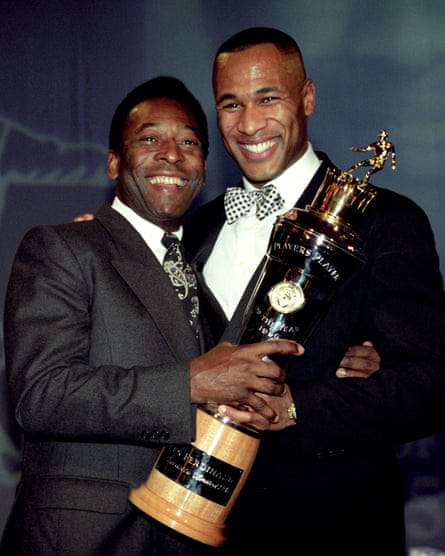
Blackburn goalkeeper Tim Flowers suffered a similar fate, staying on the bench throughout 1996 and 1998. So did, among others, Alex Stepney (1970, 1972) Joe Corrigan (1980, 1982), Chris Woods (1988, 1990) and Fraser Forster (2014, 2016), though Woods at least appeared at Euro 92.
“Viv Anderson played at Euro 1980 in England’s final group game against Spain,” writes Matthew Rudd, “but then travelled to the 1982 and 1986 World Cups and Euro 88 without kicking a ball.”
Andy Brook highlights another England full-back – Tony Dorigo, who was in their squad in 1988, 1990 and 1992 as understudy for first Kenny Sansom and then Stuart Pearce. Dorigo made only one appearance, in the Italia 90 third-place playoff against Italy. At least he made it count by setting up David Platt’s equaliser with a fine cross.
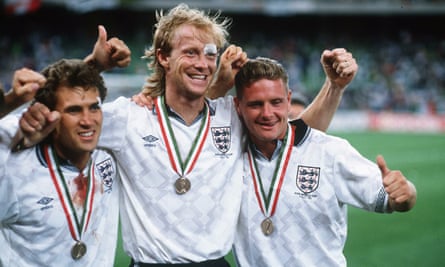
The German defender Mathias Ginter went to three major tournaments from 2014 to 2018 – and became a World Cup winner – without getting on the field, but he played all four games at last year’s European Championship and is in the Germany squad for Qatar.
Anthony Šerić was not so fortunate. “Šerić, a very decent left-back, was in Croatian squads of 1998, 2002 and 2006 but never entered the fray,” writes Luka Barisic. “Peak Robert Jarni was untouchable in France and the Far East, and Marko Babić got the nod in all three matches in Germany.”
Back-up goalkeepers are an obvious answer to this question. Chris Page nominates Sweden’s Lars Eriksson, who was understudy to Thomas Ravelli in 1990, 1992 and 1994. A number of you mentioned former Liverpool goalkeeper Pepe Reina, who went to six major tournaments – four World Cups, two European Championships – but, largely due to the brilliance of Iker Casillas, appeared in only two dead rubbers against Greece in 2008 and against Australia in 2014.
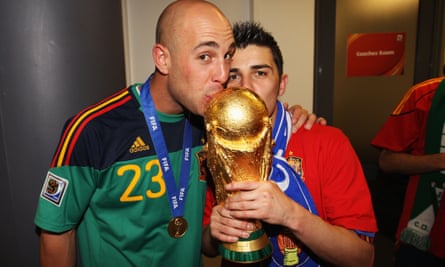
But Reina has been a regular when compared to a certain Uruguayan understudy. “Fernando Muslera has been Uruguay’s goalkeeper of choice since 2009, so pity any other keepers looking to get some playing time,” notes Tim Dockery. “One of those is Martín Silva. He was called up to the 2010, 2014 and 2018 World Cups, but never made it on to the field. Likewise, he rode the bench for every minute of the 2011, 2015, 2016 and 2019 Copa Américas. He’s 39 now and and did not make the cut for Uruguay’s squad this year (but Muslera is still there).” Seven tournaments without playing must surely be a record. If not, you know what to do.
Low-ranking curtain-raisers
“The opening game of the World Cup between Qatar and Ecuador will have a combined Fifa ranking of 94: Qatar are 50th and Ecuador 44th. Has there ever been an opening match between lower-ranked teams?” asks Emily Jules.
The Fifa rankings were only introduced in December 1992, so we can’t check the World Cup curtain-raisers before then. But in the last 30 years there have been a couple of matches that beat Qatar v Ecuador in this particular game of onedownmanship.
From 1974-2002, the opening game involved the holders, which inevitably made for a fairly high combined ranking (as the list below shows, 1994, 1998 and 2002 were almost identical). But in 2006, Fifa switched to an opening game involving the hosts; that, combined with some, ahem, eccentric decisions around hosting rights, has made for some less eyecatching openers.
In 2010, the hosts South Africa (world ranking 83) played Mexico (17), a contest with a combined ranking of 100. South Africa are still the lowest-ranked team to appear in the first game, though they played well that afternoon and drew 1-1.
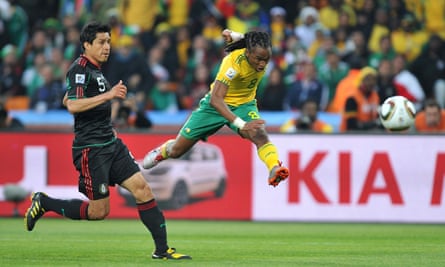
But the worst opening fixture, in ranking terms, occurred four years ago. Russia (70) played their apparent superiors Saudi Arabia (67) – and thrashed them 5-0. At the other end of the scale, Brazil (3) v Croatia (18) in 2014 was the game with the highest combined ranking.
Here’s a full list of the opening fixtures since rankings were introduced:
1994: Germany (1) v Bolivia (43); combined ranking 44
1998: Brazil (1) v Scotland (41); combined ranking 42
2002: France (1) v Senegal (42); combined ranking 43
2006: Germany (19) v Costa Rice (26); combined ranking 45
2010: South Africa (83) v Mexico (17); combined ranking 100
2014: Brazil (3) v Croatia (18); combined ranking 21
2018: Russia (70) v Saudi Arabia (67); combined ranking 137
2022: Qatar (50) v Ecuador (44); combined ranking 94
Managers replacing their successors (2)
In last week’s Knowledge, we looked at managers who had returned to their old job before the ink had settled on their P45. You suggested plenty more, so here they are in convenient list-form.
Celtic (1983-87) Billy McNeil, David Hay, Billy McNeil.
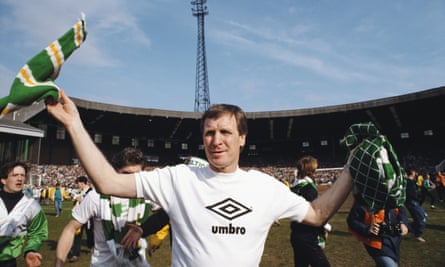
Coleraine (2018-19) Oran Kearney, Rodney McAree, Oran Kearney.
Córdoba (2018) José Ramón Sandoval, Francisco Rodríguez, José Ramón Sandoval.
Crystal Palace (1993-97) Steve Coppell, Alan Smith, Steve Coppell, Dave Bassett, Steve Coppell.
Steve Coppell, twice at CPFC
— Thom Scott-Phillips (@tscottphillips) November 9, 2022
84-93 Coppell
93-95 Alan Smith
95-96 Coppell
96-97 Dave Bassett
97-98 Coppell
Exeter (1991-94) Terry Cooper, Alan Ball, Terry Cooper.
Everton (1987-90) Howard Kendall, Colin Harvey, Howard Kendall.
Palermo (2015-16) Giuseppe Iachini, Davide Ballardini, Fabio Vivani, Giovanni Tedesco, Giovanni Bosi, Giuseppe Iachini, Walter Novellino, Davide Ballardini.
OK, technically Iachini and Ballardini didn’t replace their successors but look at the state of that over a six-month period.
Scunthorpe (2004) Brian Laws, Russ Wilcox, Brian Laws.
Stoke (2005-06) Tony Pulis, Johan Boskamp, Tony Pulis.
Swansea (1989-90) Terry Yorath, Ian Evans, Terry Yorath.
Terry Yorath left @SwansOfficial for Bradford City in 1989, was replaced by Ian Evans, and returned little more than a year later when Evans was fired. To reappoint him, Swans had to drop the action for breach of contract against Yorath and City for his departure.
— Huw Richards (@huwrichards3) November 9, 2022
West Ham (2018-19) David Moyes, Manuel Pellegrini, David Moyes.
Knowledge archive
“Rob Green’s howler against the USA got me thinking,” wrote Pete Bailey in 2010. “Which player has had the most error-strewn World Cup?”
Step forward the hapless Pierre Issa. The South Africa defender did not enjoy the most auspicious tournament in 1998. In the first game against France he scored two own goals and missed his side’s only clearcut chance at the other end. And in Bafana Bafana’s final group game against Saudi Arabia he conceded two penalties. Issa, however, protested his innocence: “For the first penalty I didn’t touch the Saudi and on the second our arms and legs entwined and we fell over together.”
The misery didn’t stop there. He joined Watford in 2001 and in one of his meagre 15 games for the club he was carried off the field on a stretcher only to be dropped by the medical team.
The South Korean goalkeeper Hong Duk-yung is another contender. Hong conceded 16 goals in two games at the 1954 tournament – a 7-0 defeat to Turkey had been preceded by a 9-0 loss to Hungary – though quite how many of those were down to goalkeeping incompetence is open to question.
Can you help?
What World Cup player played for the lowest ranked club team from their (or any) league team? Has anyone from the second or third tier popped up in a WC finals and played for their nation?
— George Davidson (@MrHenryGee) November 15, 2022
“Which late call-up/injury replacement has been the biggest success story at a World Cup?” tweets David Ardisson.
Has any team ever qualified with a 100% record and then lost all three matches in their group? If not, what's the worst World Cup performance for a team with a flawless record in qualification?
— Andy Brook 🏆 (@andybrook1) November 15, 2022
“Hector Zelada was part of the Argentina squad who won the 1986 World Cup. He never played a match for his national team, before, during or after that World Cup.
Are there any other uncapped world champions who have never played for their national team?” tweets Pablo Miguez.
Mail us your questions or tweet @TheKnowledge_GU.
